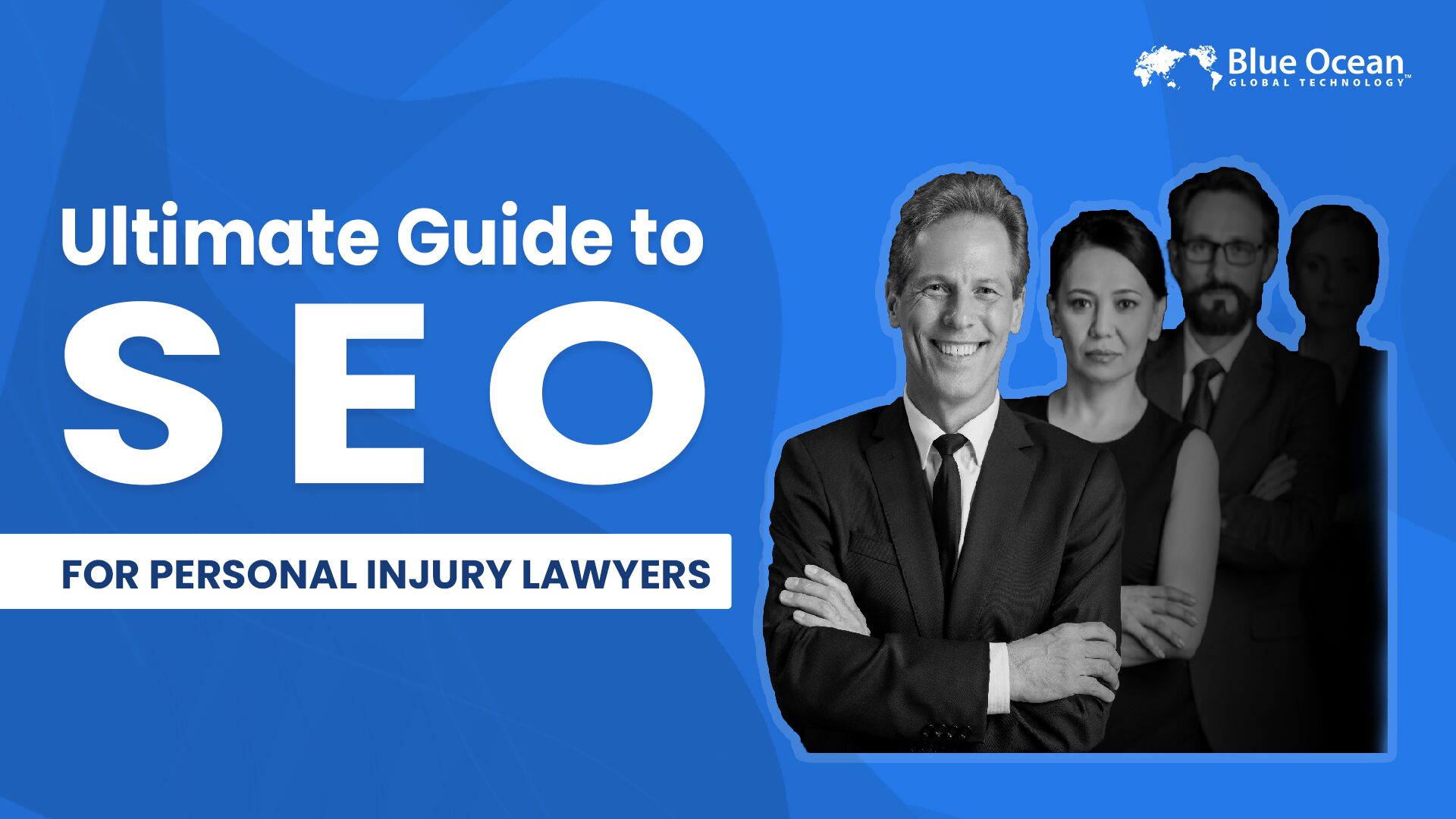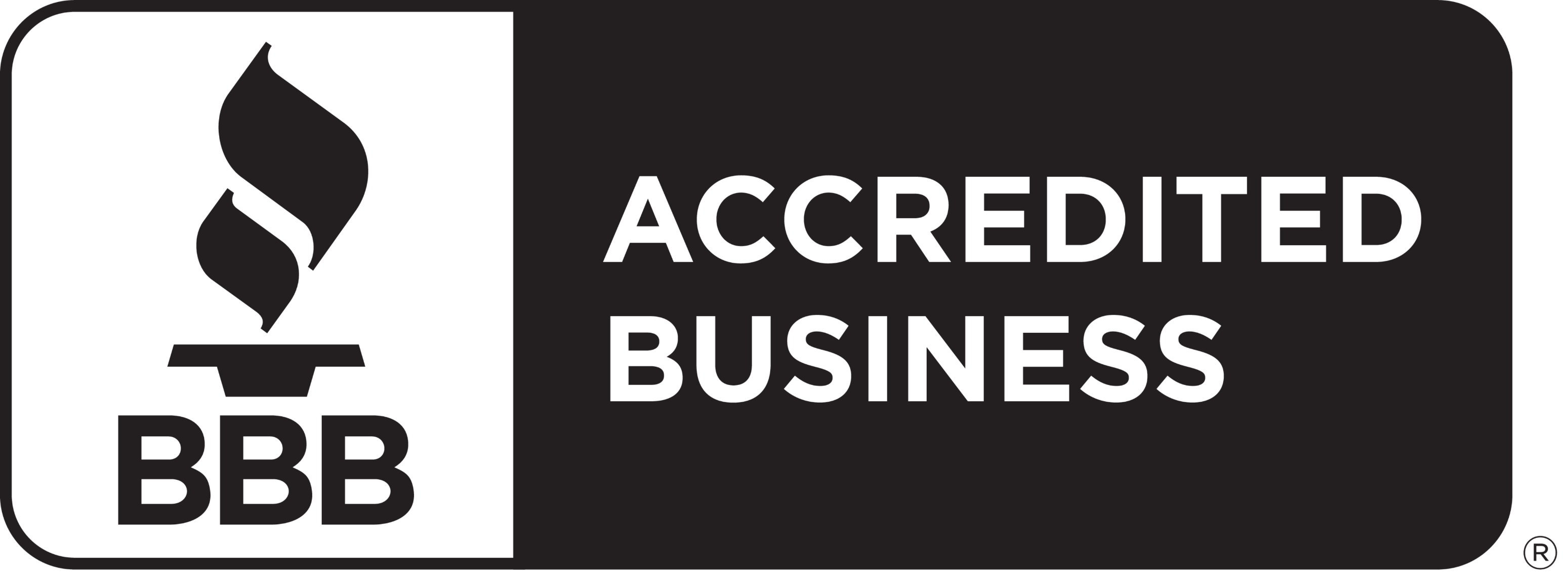Have you found yourself needing help to bring traffic to your online law firm? Let’s say you have a near-perfect website design, and your team has an amazing track record, but for some reason, you’ve found yourself bringing in hardly any online traffic. The legal expertise is fiercely competitive in the online presence, and even the most solidified personal injury law firms might find it difficult to gain interest and obtain leads without an organized approach to Search Engine Optimization (SEO).
In the legal field, personal branding is essential for standing out and attracting clients. Branding refers to developing a distinctive and recognizable identity for a lawyer’s or law firm’s profession. It includes how others perceive a lawyer and their name, logo, website, and other online presence. Lawyers can use branding to set themselves apart from the competition, keep clients, and control their reputation. It includes developing an engaging visual identity, delivering consistent brand messaging, keeping up with social media, etc.
Blue Ocean Global Technology offers oriented marketing strategies for lawyers, such as personalized plans and strategies, deep-rooted SEO techniques, and more.
What is the importance of SEO for Personal Injury Lawyers?
SEO is the process of improving your website to increase your company’s visibility in search engines when consumers search for your specific services. Personal injury lawyers typically do not end up with the same client more than once; therefore, you must generate a number of quality leads that will lead to profitable income. This is why SEO for personal injury lawyers is so important.

Boost Your Digital Marketing Efforts
Blue Ocean Global Technology can help you analyze your SEO strategies.
Keyword Research and Targeting
Because SEO keywords are used to guide clients to your services, learning the correct and most effective keywords to utilize with your personal injury law firm is crucial for success. Keywords are one of the most important factors used to connect clients to your services online. There are three specific ways that SEO keywords can be categorized: informational, navigational, and transactional. Let’s take a closer look at these:
Informational Keywords: Words or phrases that reflect a user’s intention to obtain knowledge or learn more regarding a specific issue are known as informative keywords. These types of keywords are linked with the informational part of the search process. This is where consumers attempt to educate themselves on a particular topic. These search terms suggest that the person is still conducting research and might not be prepared to commit to a decision yet.
Navigational Keywords: Search terms that consumers put into search engines when they have the intent of finding a certain online destination rather than searching for general information on a topic. These types of keywords are often times used when consumers are already familiar with what they are searching for and are looking to access it quickly. Navigational keywords are usually more about finding something specific on the internet.
Transactional Keywords: Refers to words and phrases used by consumers in searches that typically express a user’s desire to complete a purchase or transaction. Keywords such as these are key to digital marketing and search engine optimization strategies because they enable companies to reach prospective clients who are continuously searching for their desired products or services. Businesses that use transactional keywords within their website are more likely to increase their visibility to those who are ready to make a purchase.
Identifying Relevant Keywords
SEO for personal injury lawyers is among the most competitive; however, if done correctly, it is also the most important thing that you can invest in for your company. Long tail keywords are phrases which are used in search engines that contain at least three words. These types of keywords are important for reaching the audience you are attempting to reach. A few examples of long-tail keywords for personal injury lawyers include:
“ATV accident lawyer in (your city)”
“Negligence related injury attorney”
“Legal help for elderly abuse”
“Hit and run legal advice.”
“Medical malpractice attorney”
“Disability legal help”
“Animal attack legal help”
These are just some of the long-tail keywords that could be used to bring consumers to your personal injury law firm. Remember to adapt these to your specific needs.

On-Page Optimization
On-page optimization is used to make sure that the content you place on your website is relevant to your services and that it gives your users a positive experience. As part of on-page SEO, keywords are strategically placed in an effort to provide a positive user experience yet still being mentioned in the most important sections.
Website Structure and Navigation
In today’s world, a website is typically the first interaction a customer has with a company, especially when it comes to law firms. When you visit a website, you want your experience to be smooth, and you want to be able to find whatever it is that you’re looking for without hassle. A user-friendly website is designed to do just that. A user-friendly website allows for visitors to easily access the things that they are searching which therefore leads to a better chance of your company gaining their business.
Another great SEO strategy to consider is the use of internal links. Internal links, also known as hyperlinks, are used to guide users to other pages within your web page. Internal links are important when it comes to SEO and the overall user experience within your website. Establishing connections between related information is facilitated by internal links. Links to related or comparable pages on a website tell customers and search engines that the content on the page relates to one another and offers a deeper grasp of the topic at hand. Internal linking helps lower bounce rates by offering pertinent links for various web pages. If they find more material on a website that appeals to them, viewers are more inclined to continue browsing and explore further.
It’s crucial to use internal links sensibly and appropriately. Reducing the amount of links you employ or utilizing irrelevant anchor text can have a detrimental effect on both SEO and user experience. A carefully constructed internal linking structure makes a website easier to navigate and more structured.
Content Optimization
The process of enhancing and perfecting digital content to make it more useful, significant and visible to consumers and search engines is known as content optimization. This procedure involves enhancing the material’s performance concerning user interface and search engine rankings by optimizing different content parts. A few different aspects of content optimization include:
High-Quality Content: To draw potential clients into your business through your website, you need to be sure that the content you are producing is both informative and engaging while also meeting the needs of your consumers. Your focus should be on giving valuable information, solving problems, and answering the questions of viewers. You want to make them feel understood, especially in the personal injury niche.
Optimizing Page Titles: You want to make sure that the titles you are creating for your content within your website are both profound and descriptive. Include your keywords within your titles in order for them to be more likely to show up within search engines.
Meta Descriptions: When writing meta descriptions you want them to be persuasive, and to thoroughly summarize your content. This encourages users to read your content, which then leads to sales.
The Use of Images and Videos: When you use images and videos on your website, it conveys information more engagingly to some users. Be sure to utilize images that are relevant to the content that you are producing. You can optimize images for search engines with the use of keywords in both the file names as well as the captions.
Headings: To arrange content, use tags for headers (H1, H2, H3, etc.) that are apparent and systematic. Headings should give the information a structure that makes it simple for readers to skim and comprehend.
The process of optimizing content is continuous and calls for close attention to detail as well as a dedication to producing informative and approachable information. You can boost your content’s performance overall, relevancy, and visibility by optimizing it.
Local SEO
The goal of local SEO is to increase a business’s online presence in local search results. It entails improving an online presence and website to draw in more local clients when they conduct searches for goods or services in a particular region. Here are some of the most important aspects of local SEO:
Google My Business Optimization: Utilize your Google business profile by making sure you keep your listings up to date on your local directories, such as Google Maps. Make sure that the business information, such as your business hours, phone numbers, and address is accurate. You may also want to include high-quality photos of your business.
Local Keywords: When using local keywords within your website, be sure to include terms and words that are specific to your location but that are also likely to be used by clients. You should use local keywords within both your content and title tags.
Encourage Client Reviews and Testimonials: You should be openly encouraging client reviews and testimonials on your GMB profile as well as anywhere else you advertise your business. You should also take time to briefly respond to what your customers have to say whether it be negative or positive. This shows potential clients that you really care about their feedback and that you are willing to fix the issues that they have within your business.
Off-Page Optimization
The term “off-page optimization” describes the methods and techniques used beyond a website to increase its online visibility, authority, and trustworthiness. Off-page optimization entails developing connections, promoting content, and obtaining backlinks from other websites, in contrast to on-page optimization, which concentrates on improving aspects within a website.
Link Building
Link building is one of the most crucial aspects of off-page optimization. It entails obtaining links to your web page from other sites. Search engines use these backlinks to determine the level of authority and trustworthiness of your website. Building high-quality links can raise your website’s search engine ranks and increase organic traffic. These are some essential tactics for successful link-building:
Guest Blog Posts: Publish guest posts for respectable websites in the legal field. Make sure the information is valuable, pertinent, and meets the needs of the intended audience. If suitable, include a backlink to your web page in the author description or inside the content.
Broken Link Building: Check other legal websites for broken links and fix them. Get in touch with the management or owners of the web page and offer to replace the broken link with one that signals to your pertinent material.
Build Quality Relationships: Establish connections with other companies, bloggers, and influencers in your field. Through partnerships and mentions, networking can result in possibilities for organic link-building.
Avoid Link-Building That Can Harm Your Website Ranking: It is imperative to avoid deceptive link-building tactics. Websites that purchase links or take part in link farms are penalized by search engines. Such strategies can damage the authority and rating of your website.
Online Reputation Management
Online reputation management is that of monitoring and managing your business’s online perception. It also involves many different strategies to help maintain a positive online presence and to address anything negative that could affect your reputation. Here are some things you could do to maintain a good online reputation:
Monitor Reviews and Respond to Negative Feedback: Keep an eye on reviews on Yelp, Google My Business, and other pertinent review sites on a regular basis. Respond to unfavorable comments in a timely and appropriate manner. This indicates a dedication to client satisfaction and a prompt response.
Utilize Social Media and Community Involvement: Involve your audience in active conversation on industry-relevant social media channels. Post encouraging things, answer criticism and demonstrate your involvement in the community. This contributes to creating a favorable impression of your brand.
Professional Online Reputation Management Services: Take advantage of expert online reputation management services such as Blue Ocean Global Technology that focus on tracking, evaluating, and enhancing your online image. These services frequently make use of techniques and resources to improve the perception of your brand and lessen the effect of unfavorable information.

SEO Measurement and Tracking
Any effective search engine optimization plan must include SEO measurement and tracking. You may learn what works, pinpoint areas for development, and illustrate how SEO affects your online presence by keeping an eye on the results of your SEO ventures.
SEO Goals and Metrics
To figure out the effectiveness of your search engine optimization activities, you must establish specific SEO goals and performance indicators. To establish objectives and important indicators for your SEO campaign, follow these steps:
Define Business Objectives: Recognize the overarching business goals first. What are the overarching objectives of the business, and how may SEO help achieve them? Objectives can be to improve lead generation, increase internet exposure, or drive more traffic.
Set Specific Goals: Establish measurable, precise goals that are in line with the company’s aims. As an example, let’s say we want to increase organic website traffic by X% in the following six months. X leads should be generated by organic search each month.
Increase the conversion rate by X% on important landing pages.
Track key performance indicators (KPIs) using analytics tools like Google Search Console: Key performance indicators are quantifiable data that show how well your SEO efforts are working. Tracking KPIs like organic search traffic, rates of clicks, keyword ranks, and more is possible with the help of tools such as the Google Search Console.
Ongoing Analysis and Adjustments
You must continuously analyze and make changes if you want your SEO efforts to be successful. The following are essential procedures to guarantee that your search engine optimization plan is flexible and always improving:
Regularly monitor your SEO performance and make needed changes: Metrics and key performance indicators (KPIs) must be regularly monitored. Frequent evaluations enable you to spot trends, evaluate the success of tactics that have been put into practice, and make data-driven improvements.
Stay up to date on all of the latest SEO trends and algorithm changes: Due to the regular algorithm updates by search engines, the field of SEO is dynamic. It’s critical to keep up with the newest trends, algorithm modifications, and industry best practices. Frequent updates guarantee that your SEO plan is compliant with the most recent standards and directives.

Conclusion
The legal field is one of the most competitive, which is why SEO for personal injury lawyers is so important. There are numerous tactics and SEO resources available to help you find the perfect SEO strategy for your business that will lead to your success. If you need help along the way, Blue Ocean Global Technology offers many services to help you on your road to success.
FAQS
Does SEO work for law firms?
The short answer is yes, SEO does work for law firms when done correctly. If you want to grow your law firm’s business, SEO could be the way to do so. It’s important to remember that the efficiency of SEO might change depending on your target demographic, unique goals, and market competition. Moreover, SEO is only a small part of an all-encompassing digital marketing plan. A comprehensive strategy that incorporates SEO with other online and offline marketing initiatives is frequently advantageous for law firms. If you’re hesitant, think about speaking with a specialist or agency in digital marketing to evaluate your unique circumstances and objectives.
What percentage do most personal injury lawyers take?
The contingency fees that personal injury lawyers usually charge typically range between 33 and 40 percent. The specific amount may vary depending on different factors within your case. Most personal injury lawyers also have different rates for cases that are more likely to go to trial. You should always discuss charges and fees with your personal injury lawyer before making an agreement.
How much do personal injury lawyers spend on advertising?
Smaller businesses may spend a few thousand dollars on advertisement each month, while larger, more established companies that work in cutthroat industries may spend thousands or even millions of dollars.
It’s crucial to note that digital marketing—which includes content marketing and online advertising—has grown in significance for legal practices, particularly those that handle personal injury claims. The target demographic for the business, the caliber of the commercials, and the entire marketing plan all influence how successful an advertising campaign is.
What percentage do personal injury lawyers take in Florida?
In Florida, as in many other jurisdictions, personal injury attorneys typically accept contingency fees in the range of 33% to 40%. The precise amount, however, may differ depending on the case’s specifics and the policies of each lawyer or law office.
When a lawyer charges on a contingency fee basis, it indicates that their payment is only due if their client wins their case or receives a settlement. Usually, the attorney does not get paid if the lawsuit is not successful. It’s crucial for people looking for legal counsel to talk about the fee schedule, including the percentage and any other possible expenses, at their first meeting with the attorney.
Fee structures can also be impacted by legal and ethical guidelines, which differ depending on the jurisdiction. As a result, it’s best to speak with a Florida personal injury attorney immediately to obtain the most precise and current information about their costs and any relevant legal issues.
Analyzing and Monitoring Your SEO Is Just a Click Away.
Get in Touch to Know How.













